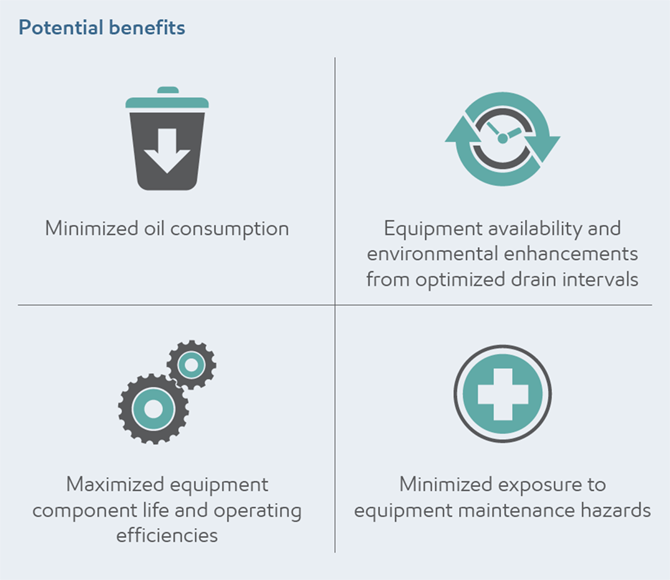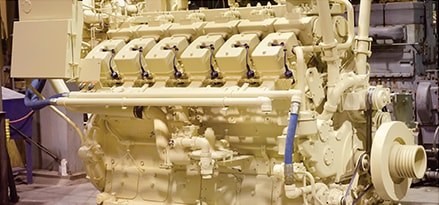Description
Our engineers use expert insights to outline the potential benefits of oil drain optimization that are unique to each machine, component and application. They work with your team to design and implement field validation protocols and conduct periodic reviews. This enables you to identify equipment profile changes, set maintenance objectives, ensure guidelines are followed and revalidate service interval baselines as significant changes occur in the equipment’s profile.
Application
We work with you to:
- Conduct a feasibility study reviewing oil analysis history and equipment parameters
- Facilitate teamwork to agree on field validation protocol
- Implement service interval based on: OEM recommendations, your requirements and equipment, lubricant selected, and type of operation/conditions
- Determine potential benefits of extending drain intervals, weighing risks and rewards
- Select representative test equipment for the validation study
- Oversee ongoing oil analysis and complete assessment of equipment performance
- Ensure cooperation of maintenance personnel for follow-up
- Conduct thorough data analysis and periodic reviews
Deliverable: An Engineering Service Report outlines the oil drain interval study’s results and estimated value of the recommendations through data-driven analysis — including charts and photographs as appropriate.
Common opportunity areas
- High oil consumption levels
- High maintenance and used-oil disposal costs
- Exposure to equipment maintenance hazards
- Environmental challenges
Safety, health and environment
Our field engineers are attuned to the hazards of handling, storing and using petroleum products. They strictly observe safety and environmental rules, as well as ExxonMobil and customer safety practices. They coordinate efforts through designated plant personnel verifying electrical and mechanical lockout and proper tagging prior to working on equipment, and providing recommendations to help reduce hazards.


